Oct 15, 2023

Every designer was pumped up after hearing Brian Chesky talk at Config 2023. He said that Airbnb was the only company in the Fortune 500 that has Design Cofounder. Why is such an abysmal case with Designers and how can they start more successful companies? Let's deep dive into this topic.
If we see types of businesses, there are 3 types

Designers do start service-based companies in the form of Design Agency and Design Education. So, we are not talking about that.
Now if we see product-based, physical product has more past than digital product. Designers specialized in Industrial design as the education of digital design in design school is also new.

This is the list of Chief Design Officers list on Wikipedia. More than half of the CDOs are for physical product-based companies. Some are for banks which again focuses on service.
There are design founders for physical products like

Imran, who has extensive experience as designer at Apple, which has one of the best physical product design. Do check out his 1000 patents. He started Humane with his wife as a cofounder who specializes in Engineering.
Since I don't have much experience in Physical Products, I will focus on Digital products. So to rephrase the topic
Why aren't there enough Design Founders for Digital Products?
First of all building companies is a harder thing to do than doing a job. Early-stage startup is about survival.
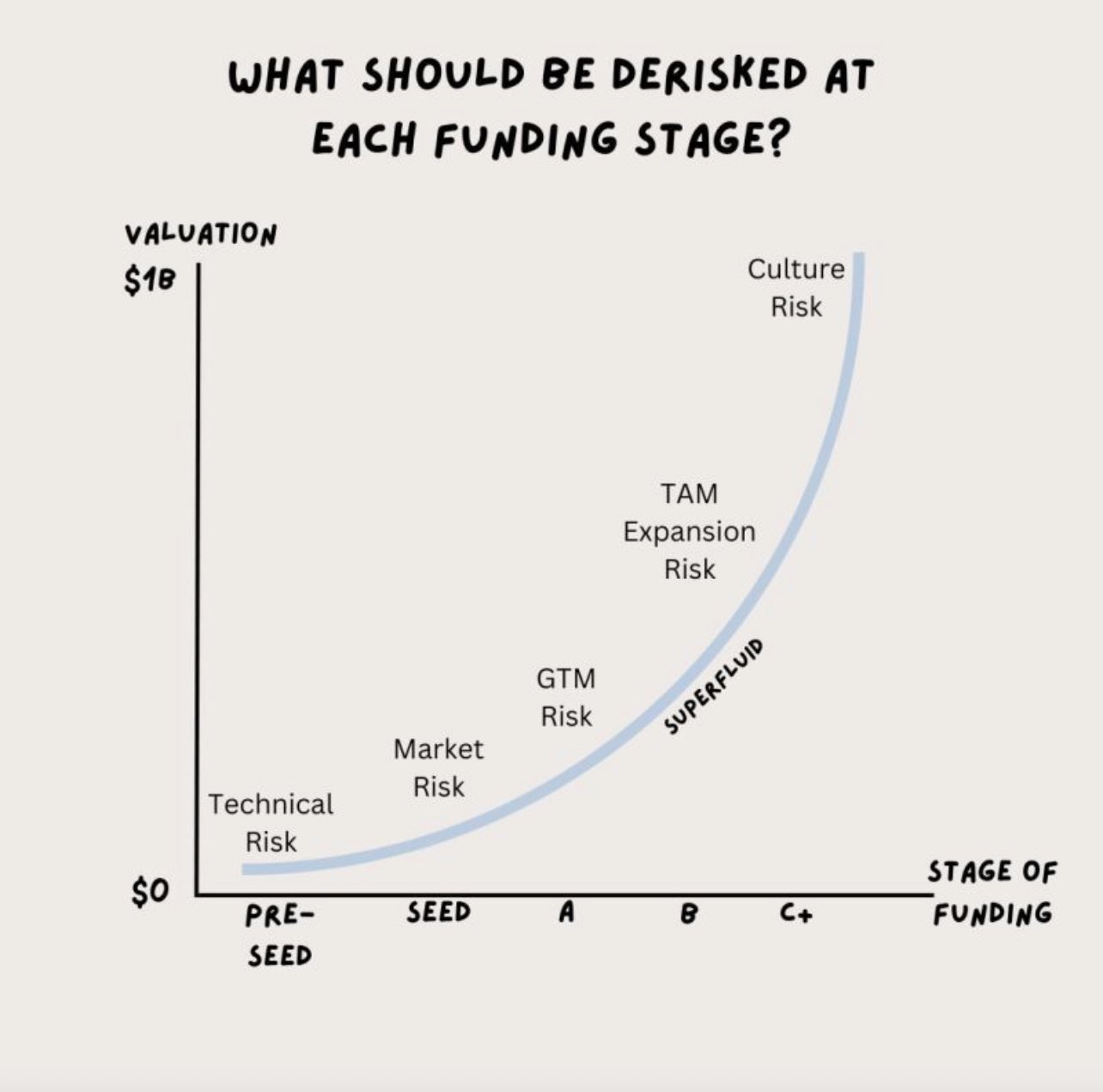
There is technical risk in very early stage. The question that looms in the minds of founders is whether they can build the product. So, the most important skill for early stage is Engineering. And if you build the product then there is also market risk, so the next skill they need is Business (Sales/Marketing).
And the conventional theory for digital product startups was to have this trio.

The designer is supposed to be there to understand users and give a great experience.
But if you see how startups are actually starting is having Domain Expert.

These domain experts while taking titles generally take CPO or COO. But the domain expertise also can be with Engineering and Business. Also, cofounders want fewer cofounders so that each can have a larger share.


Today the designer is not in the equation because the developer has access to all the beautiful themes and templates on which it can build the product fast. They are not looking at targeted entry but a faster entry.
Also, the orgs develop like that where the designer is not in the core group. At early stage the designs can be outsourced also. As they grow the team, the designer comes in-house at the second layer.
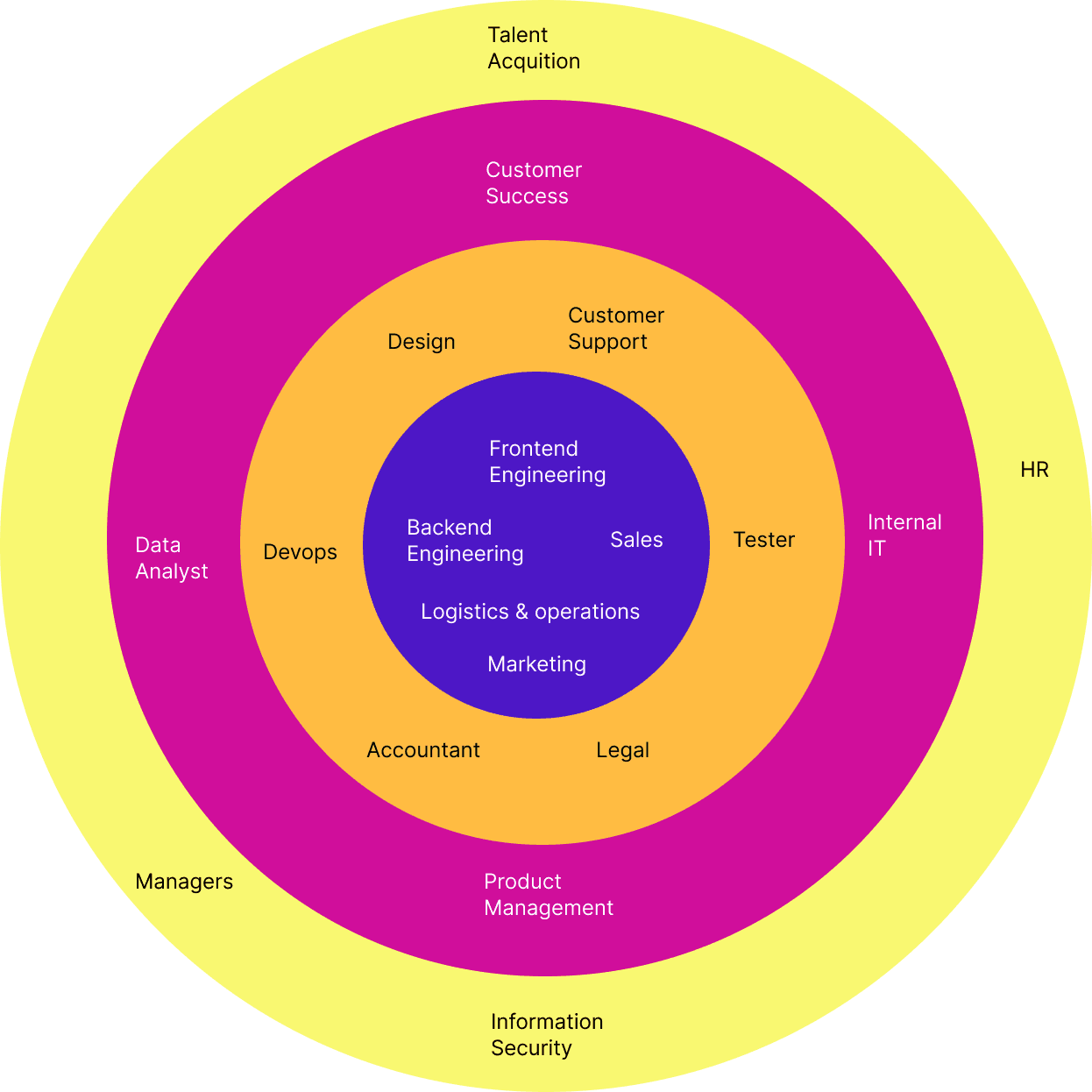
So, this is the general team dynamics perception due to which it is difficult to be a design cofounder in the equation.
Now let's look at some successful design cofounders of digital products.
Founder - Market fit -> Exit to Adobe
Here founder - market fit refers to design founders, who are making stuff for designers. These were acquired by design tooling giant Adobe. The cofounders had complementary skills like business and engineering.

We all love Behance for getting design inspiration and putting design portfolios. Scott Belsky and Matias Corea founded Behance but for 4 years kept it bootstrapped. When they took VC funding, that's when they started to grow and they sold to Adobe for $150 milllion.
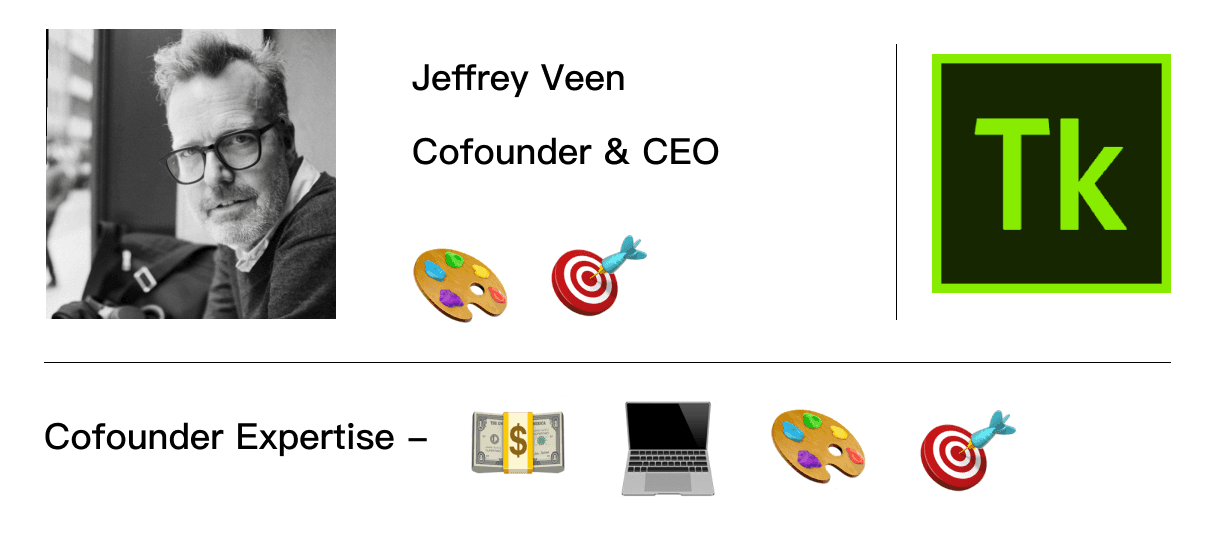
Jeffery Veen was UX Manager at Google. Then he founded Typekit to solve font-related problems while development. Cofounders were into design, development and business. It was acquired by Adobe for an undisclosed amount.

Dylan founded figma with Evan Wallace, who had experience in Graphics related development. Dylan was a design intern and did not have much experience, when he got thiel fellowship of $100k and dropped out of college to build Figma. Without much business background, they still managed and it was finally sold to Adobe for whooping $20 billion.
B2C & Marketplace with Design as main USP
You must have seen this graph from Mckinsey
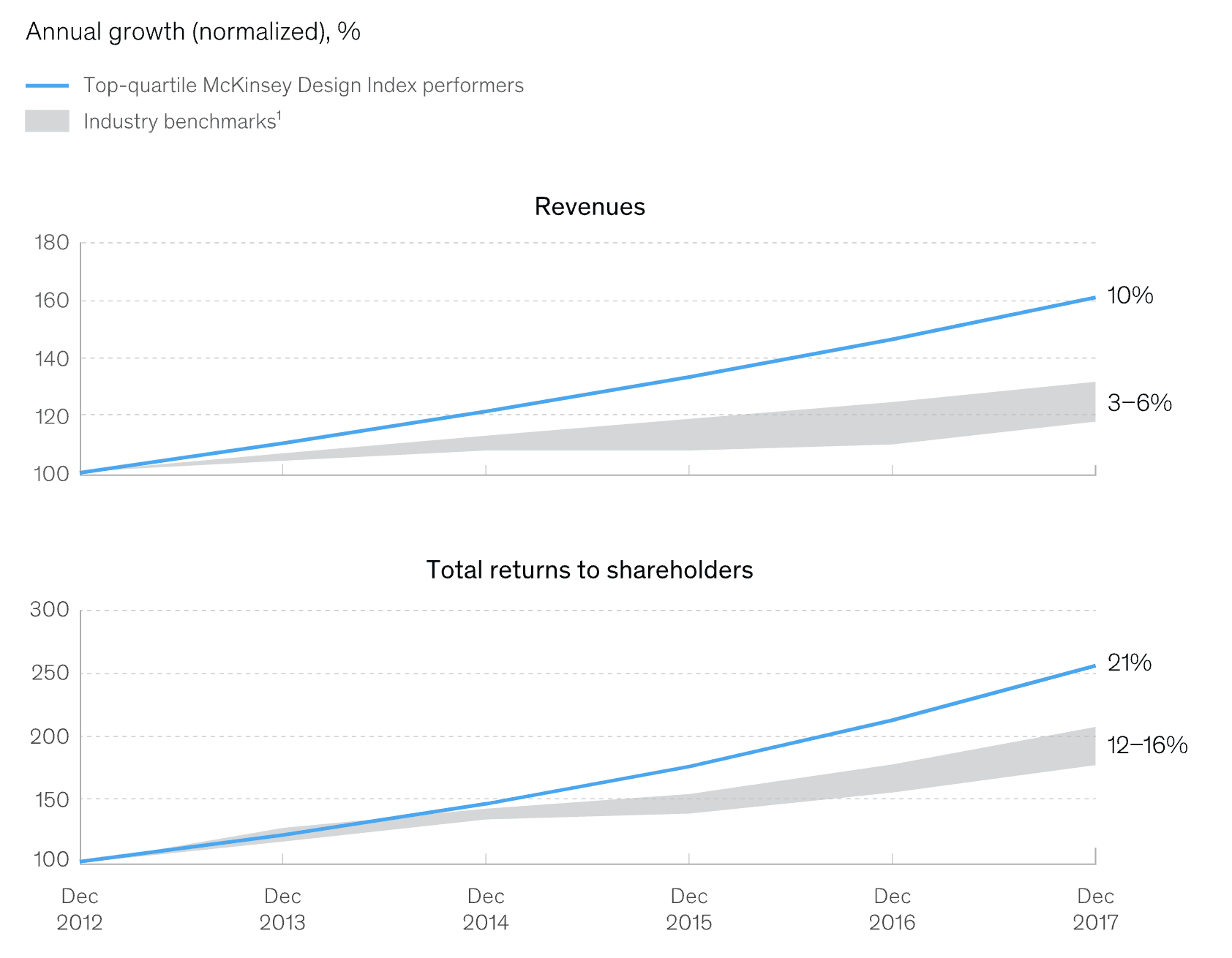
It says that companies that focus on design did much better than companies that don't. These companies would have brought designers in the second layer and founders would have believed in importance of design.
It does not mean that any company can be started by design founder and focus on getting good UX. There are only certain types of successful companies which have been founded by design founder. Those companies naturally had Design and Customer Experience as main USP. Let's look at those
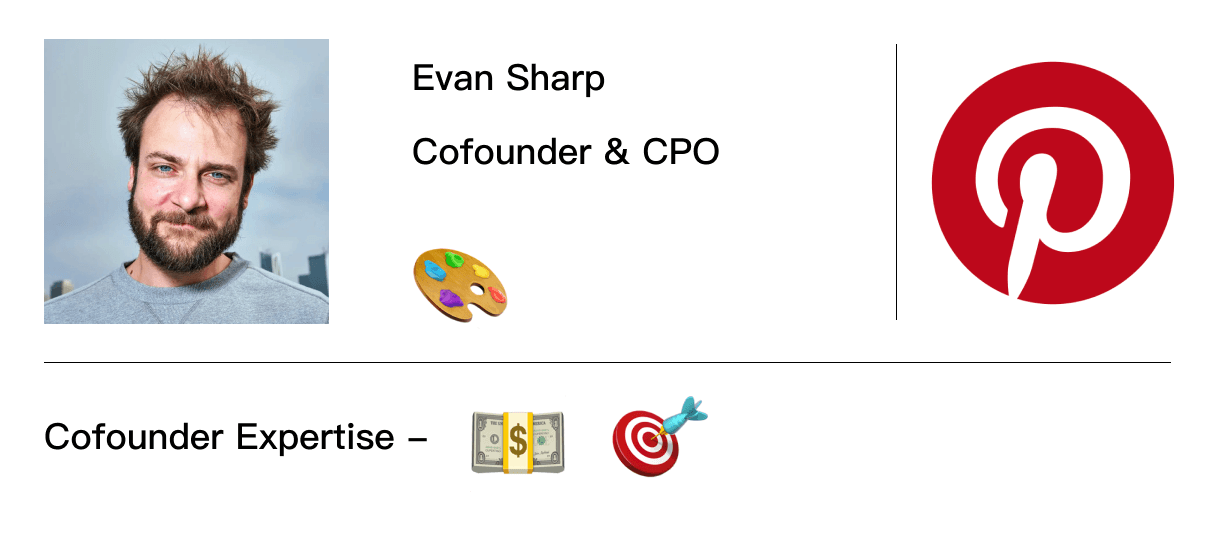
Ben Silbermann came with the idea of Pinterest after some fails and leaving Google. He brought in Paul Sciarra for business. But he understood that a Photo collection app has to be visually good and he roped in Evan Sharp as Cofounder & CPO. Evan was Product Designer at Facebook before this.
Female are major users of Pinterest. Female appreciate aesthetics and beauty more. This gives an insight that if you are building for female niche then you must consider having design cofounder.
Pinterest is valued at $17 billion right now.

Robert Kalin was an amateur furniture maker who wanted to sell goods online and the idea of Etsy came. He built it with cofounders who specialized in Engineering. There was no business cofounder in the mix at the start but later new CEO was brought after which the business grew a lot.
Rob specialized in UI development. And many designers come from Computer Science background. So, if they can do both design and frontend development, they can team up with backend engineer and business cofounder.
Etsy is a marketplace for artisans so focus on good design has to be at the core naturally. Etsy's valuation is $9 billion right now.
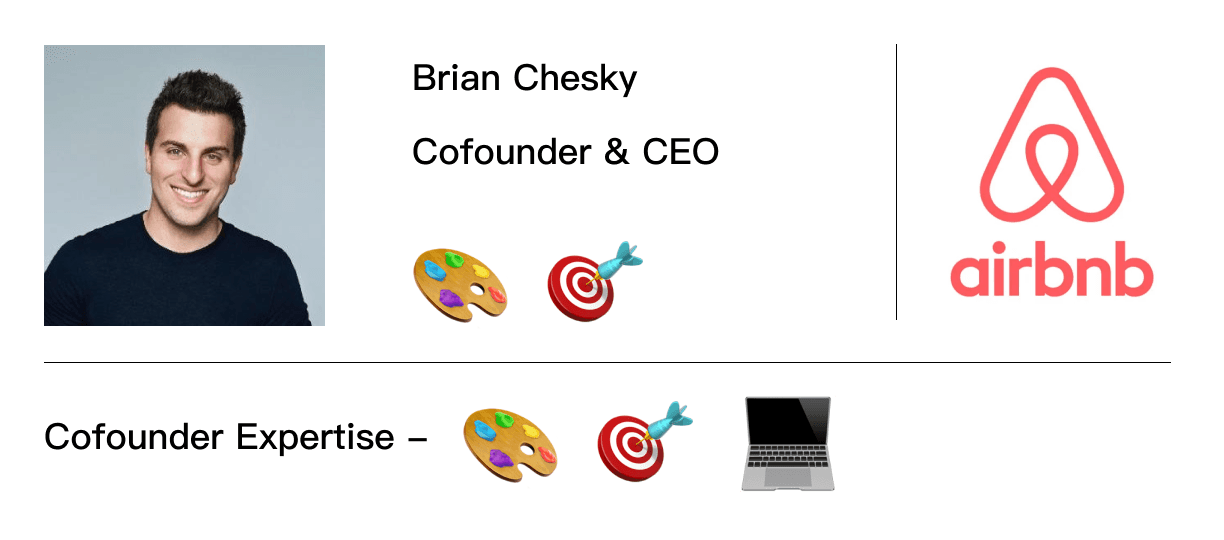
Brian Chesky and Joe Gebbia, both were designers and they teamed up with Nathan Blecharczyk who specializes in Engineering. They put their homes on sharing to earn money and the idea of Airbnb came up. So the domain expertise came to them while solving their own problem. The idea of Airbnb was "Crazy Creativity" which proved to be disruptive in Rental Industry.
Designers can come up with creative ideas to solve a problem (theirs or others). If lucky, that idea can be disruptive in industry of large size. Disruptive ideas takes courage to implement as most people will call it "Crazy". You need support from the initial users to make it grow by "word of mouth", which can be achieved by great customer experience.
Airbnb is a marketplace. A marketplace is hard to build but if it is sustained then it can become a monopoly. Also, Airbnb is disruptive. So the value of Airbnb is very high at $80 billion right now.
Now designers are also creating B2B companies. Though it still needs some time to say that this way is successful but let's look at some examples.
B2B with highly experienced, industry-leading design founders
B2B may have a lesser market size than B2C but it leads to profitability early. B2B scale more with a proportional increase in cost. So, it has a better ROI.
You must have seen successful B2Bs are created by people who have domain expertise. Some have worked in the domain for a long time. Highly experienced, industry leading designers have been there and seen a lot from business and market perspectives, that they can also create B2B businesses.

Julie Zhou was VP of Design at Facebook and wrote the bestseller "Making of a Manager". She teamed up with Facebook colleague Chandra Narayanan, who specializes in Engineering and Analytics to build Sundial, a data analytics product. Through design, they focus on storytelling through data.

Hrush Bhatt and Sunit Singh, both specialize in design and founded Fincent, a B2B fintech product. Hrush also started Cleartrip and exited to Flipkart. So, he has vast experience. He focuses on simplicity in SaaS through design.
With very high experience in design, building B2B products mean they understand the macro market, the domain and the users. The key point here is to study market landscape, talk to 100 users and understand their workflow and problems. The user research and market research skill of designer is very important to build B2B products.
So we looked at why the designer is not at the core of early-stage startups and we looked at the designers who successfully created digital product companies. Now, let's look at what designers can do to build companies.
Pathways for being Design Cofounder of Digital Product Companies
Get the Domain Expertise
If you have a problem and trying to solve it, the best solution comes when you get the problem and the domain deeply. In this case, you will be the idea person and can team up with engineering and business to build and market it.
Another way is to focus in one space that has large market size and growing. Then talk to 100 users in that space. You will find gaps and then you can build an idea. While talking to so many users, you will develop domain expertise.

Learn to do Market Research
You should be always looking at the macro market and the market trend. You should be always looking at different products that are coming in the space, not just in your country but in other countries too. This will give an idea of what is working out for which customer segment and what is working out in which Geographic region.

Build Founder-Market fit product
Designers already have an understanding of the design process and deeply know the problems that occur while designing. This can lead to building any tool from research tool, brainstorming tool, whiteboarding tool, prototyping tool, animation tool etc.
This space is monopolized by Adobe, so you can start very niche and can start by even building extensions. You definitely need an Engineering cofounder here.
Network with Engineering and Business people who value design
Networking is important if you want to have cofounders for your startup. If you don't have an idea and Engineering and Business friends have an idea where Design is the main USP, they can bring you in as a cofounder.
Try to build 1 and half cofounder skill
I am not talking about being a design generalist like having research and UI skills both. But I am talking about Design skill (specialist or generalist) and half of development or half of business skill.
Many people come from CS background in Design and many come from marketing background in design. So if you can do design + frontend or design + some marketing or sales, it increases the chance for you to build a company and be a valuable part of the core.
If you have an idea and want to collaborate with me, please feel free to book my calendar with seekay3@gmail.com